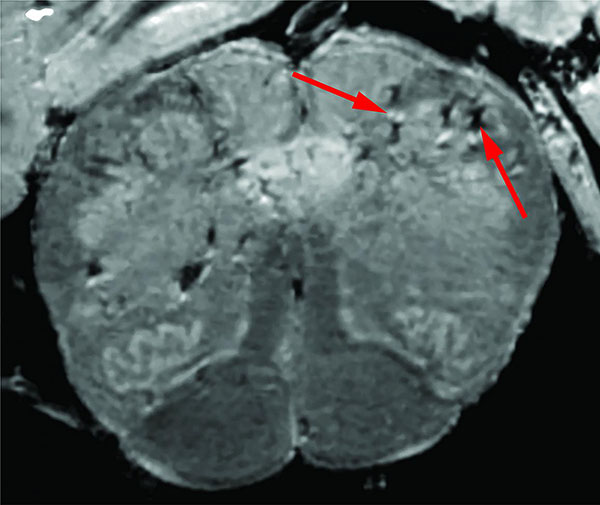IRP study uncovers blood vessel damage and inflammation in COVID-19 patients’ brains but no infection
Results from a study of 19 deceased patients suggests brain damage is a byproduct of a patient’s illness
In an in-depth study of how COVID-19 affects a patient’s brain, National Institutes of Health researchers consistently spotted hallmarks of damage caused by thinning and leaky brain blood vessels in tissue samples from patients who died shortly after contracting the disease. In addition, they saw no signs of SARS-CoV-2 in the tissue samples, suggesting the damage was not caused by a direct viral attack on the brain. The results were published as a correspondence in the New England Journal of Medicine.
“We found that the brains of patients who contract infection from SARS-CoV-2 may be susceptible to microvascular blood vessel damage. Our results suggest that this may be caused by the body’s inflammatory response to the virus” said Avindra Nath, M.D., clinical director at the NIH’s National Institute of Neurological Disorders and Stroke (NINDS) and the senior author of the study. “We hope these results will help doctors understand the full spectrum of problems patients may suffer so that we can come up with better treatments.”
Although COVID-19 is primarily a respiratory disease, patients often experience neurological problems including headaches, delirium, cognitive dysfunction, dizziness, fatigue, and loss of the sense of smell. The disease may also cause patients to suffer strokes and other neuropathologies.

NIH researchers consistently found blood vessel damage in the brains of COVID-19 patients but no signs of SARS-CoV-2 infections. Arrows point to light and dark spots that are indicative of blood vessel damage observed in the study.
This page was last updated on Friday, January 21, 2022